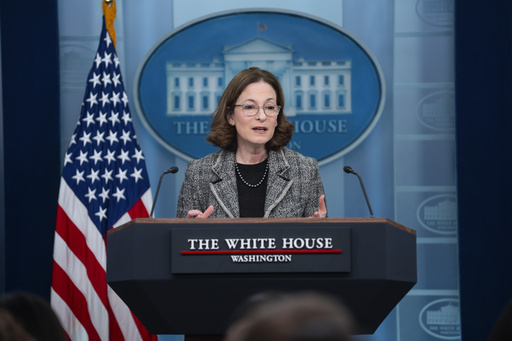In Washington, the transition between President Joe Biden and President-elect Donald Trump has shown some level of communication regarding operations inside the West Wing. However, that cooperation has not extended to Biden’s Gender Policy Council, which has been actively defending reproductive health care amidst increasing restrictions.
Established in September 2021 through an executive order by Biden, this pioneering office aimed to shape policies that improve the conditions for women and girls, both domestically and globally. Over its four-year existence, the council has focused on advancing reproductive rights, enhancing wage equality, and boosting women’s participation in the workforce. Cabinet members have representation in the council, highlighting its importance in the administration.
Traditionally, newly elected presidents reshape the West Wing to reflect their priorities, yet the Trump administration has not clarified its stance regarding the future of the Gender Policy Council. A conservative blueprint called Project 2025, created for the incoming GOP administration, advocates for its termination, primarily due to its support of abortion rights. Concerns have arisen among Biden’s officials regarding the implications of this shift, especially as reproductive health faces increasing challenges for many women following the 2022 overturning of Roe v. Wade.
Project 2025, a comprehensive 920-page guide authored by the Heritage Foundation, outlines a variety of right-wing goals, such as replacing numerous civil service employees with Trump loyalists and reversing the FDA’s approval of abortion medications. Although Trump claims to be unfamiliar with the document, several members of his impending administration contributed to it, indicating alignment with many of its suggested policies.
The handbook recommends that the new president revoke the executive order that established the Gender Policy Council and disband all related policies, misrepresenting the council’s intent as focused on “gender affirming care” and “sex-change” procedures for minors. It argues that dismantling the office would curb the promotion of abortion and comprehensive sexuality education, proposing instead to allocate efforts toward initiatives aimed at “promoting life and strengthening the family.”
While past presidents have created spaces to address women’s issues, no prior administration has had a dedicated office specifically for women’s policy advancement. Since its inception, Biden has enacted three executive orders and one presidential memorandum aimed at safeguarding reproductive health access. The council also strives to tackle health inequities. In line with First Lady Jill Biden’s encouragement, the president recently announced a women’s health research initiative with nearly $1 billion in funding, addressing the long-standing neglect in medical research concerning women’s unique health needs.
Additionally, the council has been engaged in efforts to reduce childcare costs and advocate for improved paid leave policies for families. Jen Klein, the chair of the council, stated, “The reality of the situation is that we’ve done a huge amount that helps not only women — women and families — but really it helps our society as a whole.”
Klein is optimistic that certain achievements of the Gender Policy Council will remain intact. For instance, the Violence Against Women Act was reauthorized in 2022, and some issues related to women’s rights have historically enjoyed bipartisan support. Senator Marco Rubio from Florida, nominated by Trump for Secretary of State, co-sponsored the Women, Peace and Security Act of 2017, a law aimed at protecting women and girls from violence and ensuring their involvement in conflict prevention.
Klein noted, “We had reached a point in American history where many of these issues were not only bipartisan, but where the business case had been made. Care is a perfect example of that. If you think about the trajectory of the last 10 years, these are issues that are no longer seen as women’s issues.”
In contrast, reproductive health care is a significantly more divisive subject. The Gender Policy Council was initiated prior to the U.S. Supreme Court’s decision to overturn federal abortion rights in 2022. Since then, as several states impose tighter restrictions on health care access, the council has prioritized ensuring continued availability of abortion and related services.
The council has been instrumental in safeguarding access by collaborating with the Department of Health and Human Services, reminding hospitals of their obligations under the Emergency Medical Treatment and Active Labor Act, which mandates that healthcare professionals stabilize or treat patients arriving at emergency rooms. Abortion restrictions have led to disturbing incidents where women experiencing miscarriages have been denied care and left in distressing situations.
Trump’s stance on abortion access has fluctuated throughout his campaign. He has indicated that such matters should be handled at the state level and has not backed a nationwide ban. Trump has also shifted between celebrating his appointment of justices who contributed to the repeal of federal abortion protections and attempting to maintain a neutral public image.
Recently, Trump stated he is unlikely to impose restrictions on medication abortion: “I’ll probably stay with exactly what I’ve been saying for the last two years, and the answer is no,” though he acknowledged that “things do change.”



